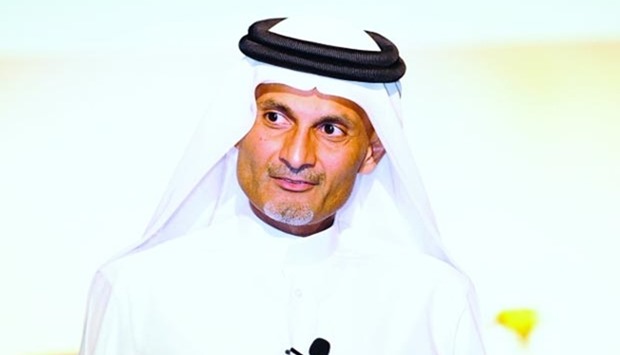Risk management can significantly reduce the increasing cyber threats in the country, according to engineer Khalid al-Hashmi, Assistant Undersecretary of the Cyber Security Sector at Qatar’s Ministry of Transport and Communications.
Speaking at the two-day Cyber Defence Summit in Doha, the official reiterated the importance of close collaboration and knowledge-sharing in Qatar’s fight against cyber crimes.
“We have to identify and analyse these risks for us to manage them well, it is a collective effort,” stressed al-Hashmi, who tackled the topic “Overcoming one of the three grand challenges of Qatar”.
In his presentation, the official cited some of the recent cyber attacks on different websites operated by private companies, news organisations, and financial institutions, among others.
The growing demand for digitising information and big data also gave rise to increasing risks in cyber attacks.
Al-Hashmi stressed that managing these risks reduces the frequency and magnitude of threats and attacks and helps raise awareness on such challenges.
“These would lead to increase in the level of trust from customers and shareholders, drive business continuity planning, and show good corporate governance,” he said.
Al-Hashmi’s statement was echoed by Vodafone’s chief technology security officer Shaik Abdulkhader who said that some sectors are doing well in managing these risks.
He said the financial sector and telecommunication companies invest heavily on cyber security compared with other sectors.
“Banks are ahead and ready because they are managing money, second, telcos have taken a lead ahead because of the sustained competition that every country has.
For telcos, the security spending is quite high,” Abdulkhader explained.
He noted that banks have started “this journey of protecting themselves” before going to internet banking and other similar undertakings,” he added.
But the official believes other industries such as manufacturing are weak in this area due to insufficient resources to invest in cyber security.
“It means they rely more on humans in intervention and involvement, their spending is far lesser than the others which are technology centered,” he pointed out.
“We have to identify and analyse these risks for us to manage them well, it is a collective effort,” stressed al-Hashmi, who tackled the topic “Overcoming one of the three grand challenges of Qatar”.
In his presentation, the official cited some of the recent cyber attacks on different websites operated by private companies, news organisations, and financial institutions, among others.
The growing demand for digitising information and big data also gave rise to increasing risks in cyber attacks.
Al-Hashmi stressed that managing these risks reduces the frequency and magnitude of threats and attacks and helps raise awareness on such challenges.
“These would lead to increase in the level of trust from customers and shareholders, drive business continuity planning, and show good corporate governance,” he said.
Al-Hashmi’s statement was echoed by Vodafone’s chief technology security officer Shaik Abdulkhader who said that some sectors are doing well in managing these risks.
He said the financial sector and telecommunication companies invest heavily on cyber security compared with other sectors.
“Banks are ahead and ready because they are managing money, second, telcos have taken a lead ahead because of the sustained competition that every country has.
For telcos, the security spending is quite high,” Abdulkhader explained.
He noted that banks have started “this journey of protecting themselves” before going to internet banking and other similar undertakings,” he added.
But the official believes other industries such as manufacturing are weak in this area due to insufficient resources to invest in cyber security.
“It means they rely more on humans in intervention and involvement, their spending is far lesser than the others which are technology centered,” he pointed out.


